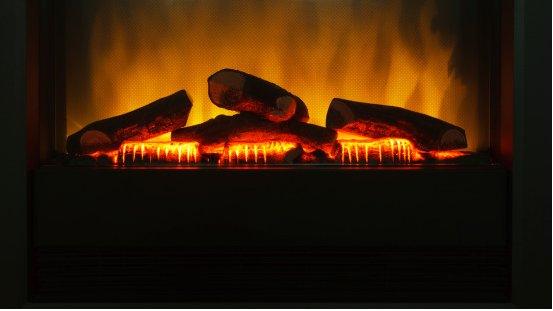UK using less energy despite growing economy, report finds
- Published
- comments
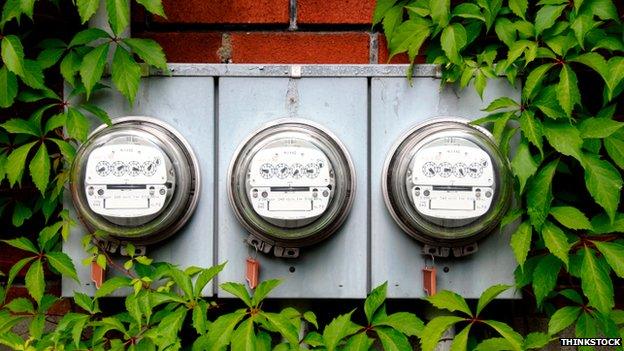
People in the UK are using less energy even though the economy is growing, new figures confirm.
Increased wealth typically leads to increased energy use - but this link appears to have been broken by technology and government policy.
New analysis of government statistics for BBC News shows that the average person in the UK is using 10% less electricity than five years ago.
That is despite the boom in large TVs, computers, smartphones and tablets.
EU standards on household appliances have allowed people to do the same tasks with less energy.
A new A-rated model fridge-freezer saves 73% of energy, compared with its 20-year-old counterpart, according to the trade association AMDEA, external. That is about £100 a year off a household energy bill.
The controversial ban on old-style lamps means an average bulb consumes 29% less electricity in 2013 than in 2008. And LED bulbs look likely to improve the quality of indoor light, as well as reducing electricity demand even further.
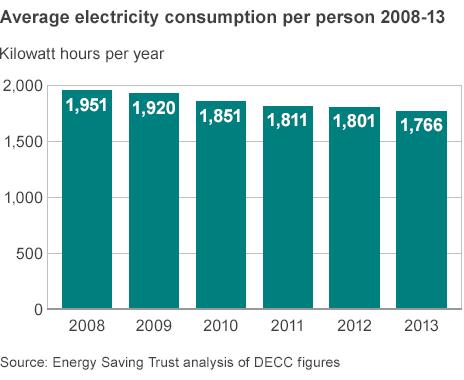
The EU is now looking at another clampdown on inefficient appliances, with the most inefficient vacuum cleaners banned from sale. Critics said the EU should not interfere in these matters, but the EU's intervention has been supported by energy experts who say that high wattage cleaners often produce increased heat and noise - but no more suction.
The tightening of standards has been driven by policies to improve energy security and tackle climate change.
A report from the UK Committee on Climate Change said household bills would have increased by an extra £165 between 2004-2013 if the energy savings had not been made.
It said gas use for heat and hot water had declined more than a quarter since 2004 - for a typical household. This reflects improvements in boiler efficiency and pipe insulation.
People also seem to have become more frugal in the recession - turning off radiators in unused rooms, but keeping the rooms they use most just as warm.
Insulation has reduced energy demand too. The number of homes with loft and cavity wall insulation is up from 39% in 2004 to 67% in 2013.
'Real achievement'
Dr Nick Eyre from Oxford University told BBC News: "Energy use always drops after oil shocks and in recessions - but this current trend looks different.

Energy saving bulbs have helped reducing electricity use
"Energy use is lower than in 1970 even though the economy is twice as big - it's the first time in memory that energy use has fallen so substantially - and it's due to policy.
"It's a real achievement. But we can't be complacent - the improvements in home insulation have fallen back since the government introduced the Green Deal in 2013."
Meanwhile businesses have also been persuaded by government sticks and carrots to save energy, so their consumption overall is down - even taking into account the state of the economy and the annual temperature, which drives demand for heating.
According to the digest of UK energy statistics (Dukes), external, consumption of all energy in 2013 was the lowest since 1985 (203.2 million tonnes of oil equivalent) after adjusting for temperature.
It says energy intensity - the amount of energy for every unit of wealth created - fell by 70% between 1970 and 2013 in the industrial sector and 55% in services.
'Economic benefits'
Greg Shreeve from the Energy Saving Trust analysed DECC data to produce the figures on individual consumption for BBC News. He said: "This demonstrates how well designed and targeted regulation can have a significant impact on our energy consumption.
"Investment in energy efficiency can lead to much wider economic benefits such as job creation and even improved health."
Joanne Wade from the Association for the Conservation of Energy said: "The figures for households are very good news - but frankly they have been achieved without a great deal of government effort.
"Imagine what we could do with a proper strategy for demand reduction. We have a long way to go."
As governments continue to increase the proportion of clean energy to combat climate change, further improvements in efficiency will be needed to reduce the impact on bills.
Follow Roger on Twitter @rharrabin
- Published12 December 2014
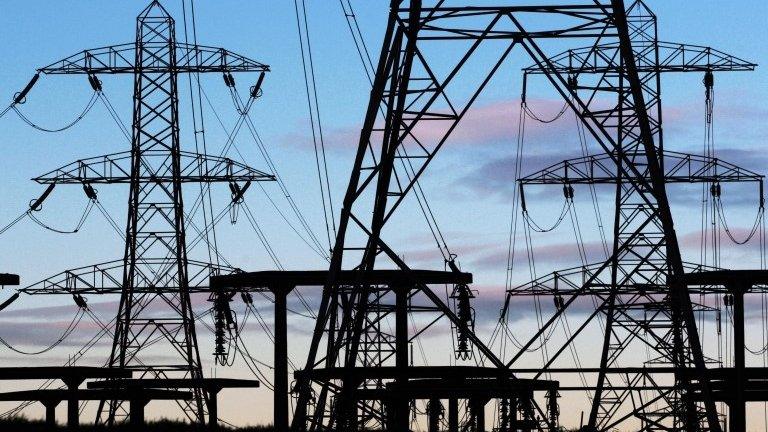
- Published14 November 2014
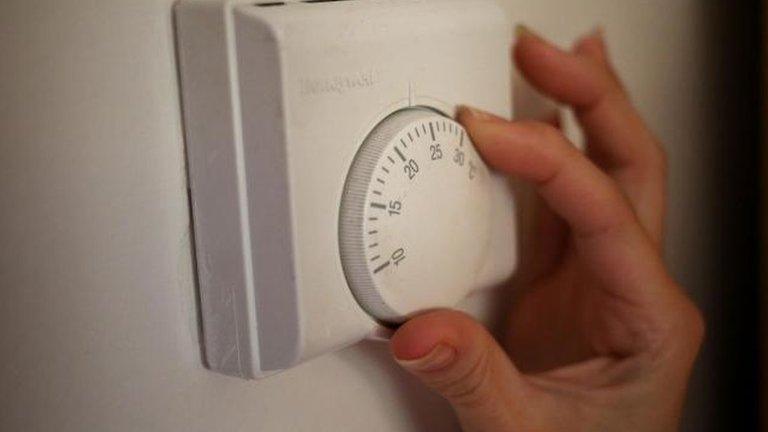
- Published3 October 2014
